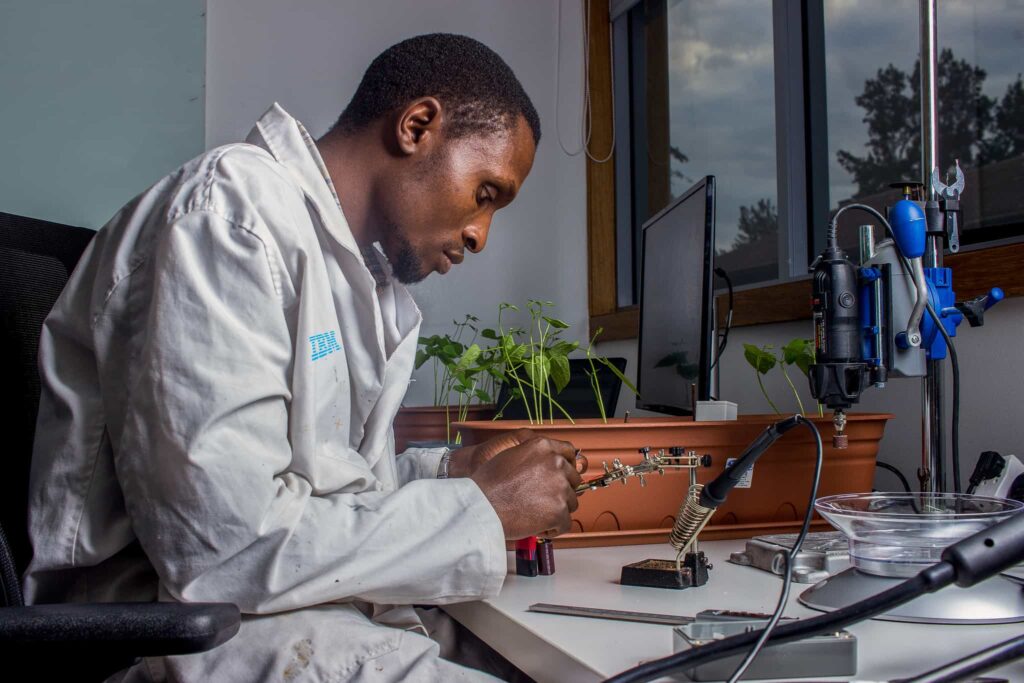How might we identify, prioritize, and evaluate innovations that will increase the consumption of safe and nutritious food among people who need it most?
Surfacing viable innovations to advance near-term nutrition outcomes in emerging markets
Challenge
One in three people worldwide suffers from malnutrition, and six of the top ten risk factors for the global burden of disease are diet-related. While the current conversation in international development recognizes the importance of nutrition, and codified it in Sustainable Development Goal 2, investment and policy priorities have not yet caught up to help scale solutions, partly because the diversity of solutions require expert insights to navigate and prioritize. Recognizing this reality, GKI partnered with the Global Alliance for Improved Nutrition (GAIN) to identify innovations with the greatest potential to increase the accessibility, affordability, food safety, and shelf life of nutritious foods in emerging economies over the next five years.
Solution
To address this challenge, GKI, in partnership with GAIN, wielded techniques from the discipline of foresight and collaborative innovation to source and evaluate innovations for their potential to improve nutrition outcomes. We began by convening experts in the fields of nutrition, agriculture, and sustainable food systems to think collectively, creatively, and critically about the future we want to build. Using a foresight technique known as Three Horizons, we worked with the experts to articulate the current challenges affecting nutrition outcomes, offer ambitious ideas for a future in which those challenges have been overcome, and build pathways for advancing the world toward an aspirational future—one in which nutrition outcomes for all people have been improved.
The workshop helped the GKI team identify the latest innovations in agribusiness marketplaces, food design, information connectivity, materials science, and supply chain technology and served as a launching point for the next phase of the study. In this phase, we employed a foresight research process known as the Delphi Technique to harness the insights of a diverse panel of global experts. These experts assessed almost 90 innovations for their potential to improve nutrition outcomes in emerging markets over the next five years. Our panel consisted of thought leaders and practitioners from the fields of agribusiness, economics, equity and inclusion, food systems, investment, sustainability, nutrition, and technology. Learn more about our process in the video below!
Webinar Introduction to the Delphi Study on Innovations for Nutrition
Our report unveils the results of the Delphi study—12 investable innovation opportunities that, if supported are forecasted to advance the nutrition goals laid out in Sustainable Development Goal 2. As a group, the innovations surfaced through this research have high potential to increase consumer access to nutritious foods by creating efficiencies from farm to market. The insights from our expert panel lay out what support these innovations would need and how the innovation might provide additional benefits to society and the planet. We also offer our interpretations of these insights in the form of our Delphi Directives: four strategies through which the top innovation opportunities improve food systems. GKI is continuing to build on this research by mobilizing innovators, investors, and food system actors to accelerate and scale solutions that provide significant impact for society, economy, and biosphere.
Results / Outcomes
- Convened 16 workshop participants who envisioned a bold future and identified 6 broad innovation pathways for the future of food.
- Scanned innovations within these pathways, including food design, materials science, food safety & traceability technology, logistics & transport, processing technology, commodities trading platforms, and equipment leasing, to source an initial roster of innovation opportunities for evaluation.
- Built a network of 29 global experts to serve as the Delphi Panel and harnessed their insights to illuminate the market opportunities, comparative advantage, and critical risks of 87 innovations with potential to support more nutritious food systems.
- Crowdsourced six complementary evaluation criteria from the Delphi Panel to serve as an objective, intuitive, and comprehensive tool to assess the potential of an innovation to achieve the desired impact.
- Converged on 12 high-priority innovations, evaluated how these would perform across the evaluation criteria, and highlighted systems factors that can enable or thwart the success of each innovation to scale.
Resources
Nutritious Food Foresight: Twelve ways to invest good food for emerging markets – The final report outlining findings and recommendations from the GKI and GAIN Delphi Study.




